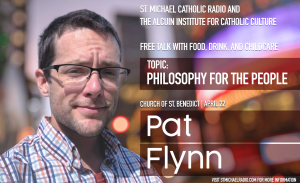#FultonFridays: The Sanctity of Life

On Fridays, I post excerpts from the writings of the great American bishop and media evangelist, Ven. Fulton J. Sheen. I call them #FultonFridays.
We live in a “throw away” civilization. Obsolescence is built into electric light bulbs, automobiles and washers, so they will be thrown away in a few years and a new one bought. Throw-away bottles, throw-away napkins, throw-away cans have produced our ecological problem of the pollution of land, air and sea. NOW there is danger that there may be thrown-away cells, throw-away tissue and throw-away fetuses, creating the greater problem of a moral pollution. Could it be that we live in the Peril of Over-kill?
When life first came to earth, Cain used the first Over-kill to attain it with his brother’s blood. Abel was “disposable life”. When Divine Life came to the world, He, too, was treated as “disposable life”.
The sacredness of life has nothing whatever to do with when life begins; it depends on who produced it. The time element has little to do with the value of life, otherwise, there could be fixed an age-limit for living. Life is sacred because it is produced by humans; tadpoles beget tadpoles, elephants generate elephants, humans beget humans. Life is sacred in itself: its value is not relative, i.e., not whether it is useful or non-useful to any other person or thing.
What other tests could possibly be applied to show that an insane man was human, that a sleeping woman is human, that a narcotic victim is human or an alcoholic? In none of these cases is there rational thought or action. But we know these are human because they came from the conjunctions of humans and had human potentiality. To say the human embryo is non-human, opens the door for Nazis to say Jews are not human, for

